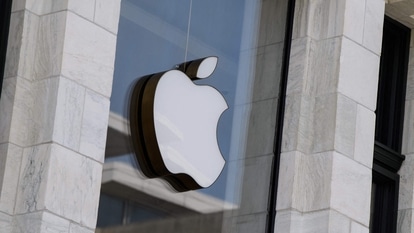14-yr-old Indian designs safety, aid app for fishermen, wins Google award
Ramesh Advay, a student of class 10 at the National Public School in Chennai, is working on an application that runs on a hand-held device like a smartphone that will warn fishermen if they are about to cross an international water boundary.

Pakistan, Dhaka and Sri Lanka apprehend over 900 fishermen in a year along with their boats because they cross international water boundaries while fishing. They are held captive till the Indian government initiates a process of release or they finish their prison time. This spells trouble for their families as they are the main bread earners. But a 14-year old Indian boy might have the solution to their woes.
Ramesh Advay, a student of class 10 at the National Public School in Chennai, is working on an application that runs on a hand-held device like a smartphone that will warn fishermen if they are about to cross an international water boundary. Called FELT or FishErmen Lifeline Terminal, the app will also help fishermen map their route of travel, mark the places where they have deployed their nets and warn them about rough weather.
"The app will save lives, help families and increase productivity for fishermen," Advay, who has won the Google Science Fair Community Impact Project award from the Asia Pacific region with the FELT project, told HT. Google Science Fair is an international, online science and technology competition that encourages students between the ages of 13 to 18 to use science to make the world better. Google later awards the students with scholarships or helps them make it a reality.


FELT works with the help of a map and a Global Positioning System-like (GPS) technology. During his experiments Advay used Google Maps on an Android smartphone and Global Positioning system (GPS) to create travel routes, mark zones and determine accuracy. Even though GPS and online Google Maps helped Advay in his trials, they might not work in rough sea conditions. Also, Advay said that location accuracy levels dropped as soon as he turned off the GPS. GPS in smartphones can only be accessible over internet packs which may be too costly for fishermen.
To make his way past these blockades and also offer FELT at a more affordable price, Advay wants to use India's satellite positioning system -- India's Regional Navigation Satellite System (IRNSS), known to the world as NAVIC, to fetch location data which is free and also an open service without any encryption. NAVIC can offer services like terrestrial and marine navigation, disaster management, vehicle tracking and fleet management, navigation aide for hikers and travellers, visual and voice navigation for drivers.
So FELT will use NAVIC's services that works even in deep seas and uses offline ( pre-downloaded) maps with international water boundaries -- to inform the fishermen if they are in the right location. The app will use a map-like interface with a big dot, just as we see on Google Maps, to let the user know if they are starying away from their route by turning red when the boundary is crossed. "If they are in the inner boundary then the colour is green but if they cross over then the colour turns red. When the boat is between the two boundaries, the app displays the yellow colour," explained Advay.


The same principles of FELT can be used to increase productivity and get weather warnings. While NAVIC services will cater to weather warnings, the map interface will help fishermen raise their productivity. "Fishermen can mark their travel routes and mark areas where they deployed nets by simply marking areas in the FELT map as we do while using Google Maps," Advay said.
Advay being the winner from Asia Pacific region is receiving an award of $1,000 in an educational scholarship and a year-long mentorship from a Google Science Fair partner organization. He along with one of his parents will also get to travel to Mountain View, California. If he wins the global award, the Google science Fair award, then Advay will have $50,000 at his disposal to make FELT a reality. Advay is the winner of the sixth edition of Google Science Fair project.
Catch all the Latest Tech News, Mobile News, Laptop News, Gaming news, Wearables News , How To News, also keep up with us on Whatsapp channel,Twitter, Facebook, Google News, and Instagram. For our latest videos, subscribe to our YouTube channel.

























